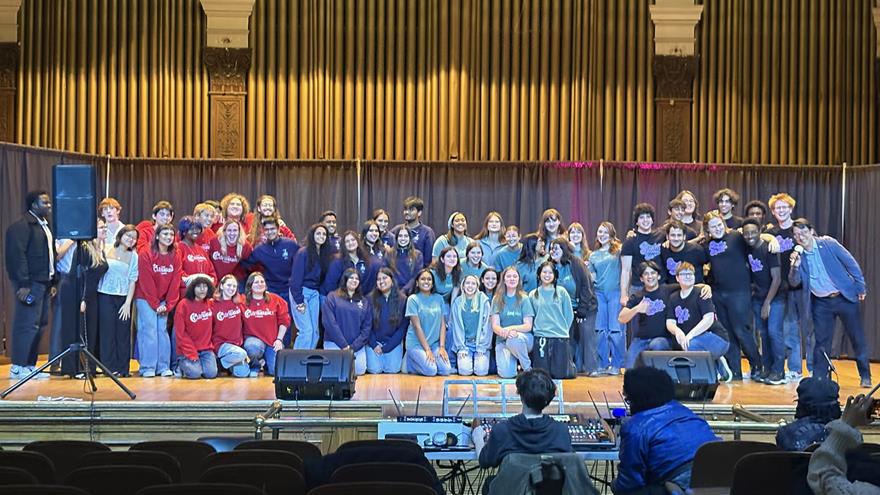Grad Student's Research on Asthma Will Make You Gasp

“I used to play soccer, and I would get the wind knocked out of me all the time,” said Chelsea Stone, a graduate student in Drexel University’s School of Public Health. “I’m lucky because I could catch my breath pretty quickly.”
But for people living with asthma, it’s not as simple.
Though neither Stone nor anyone in her family has asthma—a chronic lung disease that causes recurring episodes of wheezing, shortness of breath and chest tightness—Stone is interested in promoting and collecting data on community education of the disease.
“It’s scary for parents and the child who can’t breathe,” Stone said. “Even if you look on YouTube, you can see a child going through an asthma attack and saying, ‘I’m going to die, I’m going to die.’”
Stone’s research has taken her from the halls of Philadelphia’s St. Christopher’s Hospital for Children to the schoolrooms of the Haitian American Caucus in Haiti and, she hopes, to community centers in Pune, India, where she wants to research community-based asthma support groups.
Stone said the origins of asthma are largely unknown, but the disease is thought to be influenced by genetics and environment and can be treated with education and medication. Asthma often starts during childhood, though it can also affect adults. The National Heart, Lung and Blood Institute reports that more than 25 million people are known to have asthma in the United States, and about 7 million of those people are children.
The asthma rates are generally higher in the developed world, though the disease has been found in developing or less-developed countries. But as Stone discovered during her English teaching internship this summer in Croix-des-Bouquets, Haiti, some of those citizens are unfamiliar with the disease altogether.
“A lot of people didn’t even know what asthma was or thought that it doesn’t happen down there,” Stone explained. “But studies show asthma isn’t just in developed or industrialized countries.”
During her five-and-a-half week stay in Haiti, Stone taught English to children and teenagers, including some who traveled for three hours to take the classes. She also conducted independent public health research by examining about 100 students’ knowledge of asthma.
Her primary study was to see if asthma was a problem in the community, and what could be done to enhance education and research about the disease. Stone found that Western-style education and medicine would not work with the culture’s religious factors, infrastructure and health care.
“It’s certainly not the way it is in the United States,” she said.
Stone hopes to conduct similar research on a Fulbright grant with Chest Research Foundation (CRF), a research organization in Pune, India. According to India’s Ministry of Health, about 28 million people in the country live with the disease, which is why CRF created the first support group for those with asthma called “Shwaas,” the word for “breath” in the Marathi language. The group holds monthly sessions to teach parents of asthmatic children about the disease.
Stone plans on using pre- and post-surveys to gauge what the community learns through the monthly support groups over six months.
“There’s been rapid development in India and there has been a lot of focus around asthma because of the infrastructure and industrialization,” Stone said. “It’s great for a country to develop, but what is the impact on the environment and also the children?”
Stone has witnessed asthma’s effect on children through her volunteer work at St. Christopher’s, where she first learned of pediatric asthma. At the hospital’s asthma-specific clinic, Stone visited admitted patients who would stay overnight after bad attacks. She would educate them about what they could have done or could do in the future, and how to use their inhalers properly.
After graduating with a degree in biology from Gonzaga University in Spokane, Wash., Stone decided to go to graduate school. But Stone credits her experience at St. Christopher’s as the one that shifted her interest to work with asthmatics.
“I really found my passion just by being exposed to that,” Stone said. “It’s funny how things fall into place. You don’t know what you’re interested in until it hits you.”
In This Article
Drexel News is produced by
University Marketing and Communications.

